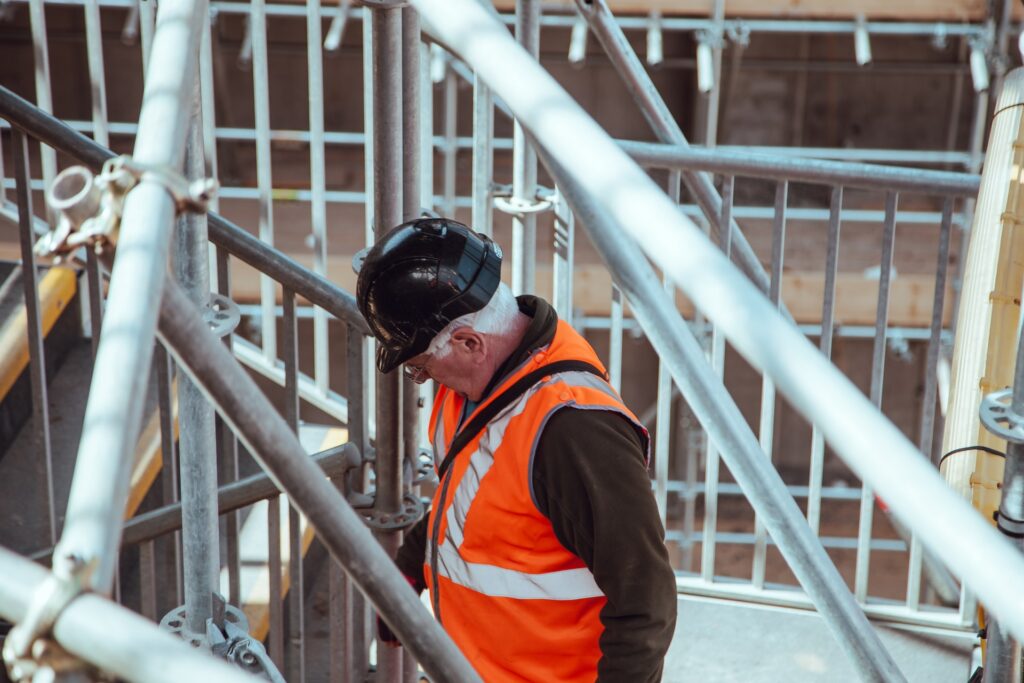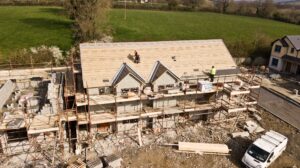
Zoning Permits: Everything You Need to Know
When you buy a piece of land, there are certain rules you must adhere to if you’re looking to develop on that land. These rules determine what types of projects can be performed in an area and are known as zoning laws. In the early years of the 20th century, zoning laws were introduced in the U.S. The purpose of these laws is to make sure that a project doesn’t negatively impact a nearby piece of land.
Along with dictating what the land can be used for and which activities are permitted on the land, these laws can also control where fences, signs, pools, and driveways can be placed. In the event that you want to make some changes to how a piece of land is used, you would need to seek approval via the local zoning authorities. This approval can only be provided with a zoning permit.
While zoning laws are similar from city to city, they can also have some differing stipulations, which is why you should know the exact zoning laws and regulations for your city or county. In this guide, you’ll learn all there is to know about zoning permits.

What is a Zoning Permit?
Zoning permits are documents that provide the holder with the ability to develop new buildings or alter existing ones. Even if the alteration ends up changing how the building is used, a zoning permit would allow for this. As an example, you may be able to use this permit to convert a residential home into an office building.
Zoning permits exist to make sure that a municipality is properly organized. When implemented, zoning ordinances will designate industrial, residential, and commercial areas. If you live in a standard residential neighborhood, zoning makes sure that you don’t have a loud manufacturing plant or shopping center right beside your home.
Zoning permits are issued by the local government or authority. If you receive this permit, it will tell you how the piece of land you own can be used. To understand how a zoning permit differs from a building permit, zoning code focuses on how land developments fit within the broader community. In comparison, building permits center around how structures are built to make sure that they are safe to use.
Why are Zoning Permits Necessary?
Zoning is essential because of the ability zoning laws have to determine which types of structures are able to be built in an area. These laws also control how and if a piece of land can be repurposed. Knowing what these laws are and how they apply to your property should help you understand if you’ll be able to qualify for a zoning permit.
Zoning laws are meant to make sure that a person or company doesn’t use land in a manner that negatively affects the nearby population. It’s believed that acts of governance in this manner should prioritize the interests of the residential population. Zoning permits give individuals the ability to change how a structure works as long as the change takes the health and safety of the surrounding community into account. Zoning laws are put into place to:
- Maintain property enjoyment and value by restricting incompatible land uses and reducing the negative impacts
- Protect the enjoyment and value of properties by attaching a property with the most appropriate land use based on the nearby uses and the property’s location
- Deliver quality public infrastructure through sewers, roads, and water
- Allow for the proper development of a city
A zoning permit is sometimes necessary for:
- Public safety reasons
- To avoid the fines and legal penalties that are possible when using the land differently
- Maintaining current property values
- Making sure that compliance with zoning laws is met
While zoning laws are essential for any city or location, they aren’t always set in stone and will change over time. It’s possible for exceptions to be made to current zoning laws, which is why you can seek a zoning permit depending on the circumstances.

When to Use Zoning Permits
Identifying when you need to obtain a zoning permit can be challenging because of the similar situations that call for a building permit. A permit expediter can advise you on how to best proceed. Zoning permits are oftentimes the first step that’s taken during development. Before applying for a building permit, a zoning permit may be necessary.
Some municipalities include zoning permits within the application process for building permits. The reason that a zoning permit must be approved before a building permit is because the regulatory authorities need to make sure that your building plans adhere to the nearby zoning code.
As mentioned previously, these permits aren’t always used for new construction. It’s possible that a zoning permit will be required when you’re making alterations to an existing property. Some additional reasons why a zoning permit is needed include:
- Changing signage
- Adding utility upgrades or heavy machinery
- Changing the blueprints or height of an existing building
- Substantially altering a building’s exterior
- Changing how the building is used
- Adding or subtracting the number of units in a building
- Any change that could lead to a value-added tax
Zoning permits aren’t required if you won’t be creating a structure that the land isn’t zoned for or substantially altering your existing structure.
What Happens If You Don’t Have a Zoning Permit
Not having a zoning permit when one is required can result in many serious consequences, which include everything from hefty fines to being tasked with tearing down any work that you’ve done. The consequences are similar to those that would occur if you don’t obtain a building permit.
If you don’t adhere to local zoning laws, you’ll likely experience serious damage to your finances. Along with high civil penalties, you would be tasked with removing the illegal structure, which costs time and money. Depending on the county the development has occurred in, a criminal proceeding could also take place.
This type of case would likely result in more fines being imposed. Repeat offenses make imprisonment a possibility. Your local zoning authority might not give you future permits. You could also be told to sell the property at a rate that’s less than the fair market value. While you can appeal a zoning agency decision or take steps to obtain a conditional use or variance, it’s highly recommended that you avoid these legal issues altogether by obtaining a zoning permit.

Benefits of Having a Permit Expediter
A permit expediter is a professional who has extensive knowledge of legal and administrative procedures in the construction industry. When it comes to the area that a permit expediter operates out of, they will thoroughly understand local zoning requirements, permitting processes, and building codes, which gives you the ability to navigate zoning issues without fearing that you’ll be assessed fines or penalties for violating zoning laws.
Permit expediters can also help you avoid expensive delays because of improper filing or incorrect paperwork. When you hire a permit expediter, they can oversee the entire project, which extends from filing the initial zoning permit application to installing electrical systems. They’ll help you save time and money by meeting deadlines and adhering to regulations.
As an example of how you can benefit from hiring a permit expediter, consider the fact that precise timelines are important when you’re creating a budget for your construction project. Clients will typically attempt to finish development projects as quickly as possible to reduce capital. A more expedient project timeline means that costs for overhead and labor will be lower.
Permit expediters can help you understand how long your project should take and what your costs might be. They’ll look at the timelines that project managers and architects develop before making any necessary corrections. Once an accurate timeline is created, the permit expediter will follow it closely.
You’ll also benefit from their knowledge of compliance guidelines. Local authorities make comprehensive permit procedures and building codes, which means that each city or county has different rules that they must follow. Projects are able to avoid delays and fines by maintaining compliance throughout the entirety of the building process. Permit expediters always remain up to date on the latest code changes, which makes it easier for you to avoid unnecessary compliance headaches.


Conclusion
Obtaining a zoning permit before starting development is highly recommended if you want to avoid substantial fines, demolition of the work that you’ve done, and possible jail time. By complying with zoning laws and regulations, you’ll be able to start your construction project without delay.
If you want to be certain that your development plans adhere to local regulations and that you don’t make mistakes that could cause lengthy delays, consider hiring a permit expediter. An expediter will help you navigate regulatory hurdles and maintain compliance during development.

Jason Somers, President & Founder of Crest Real Estate
With over 15 years of professional experience in the Los Angeles luxury real estate market, Jason Somers has the background, judgement and track record to provide an unparalleled level of real estate services. His widespread knowledge helps clients identify and acquire income producing properties and value-ad development opportunities.
Learn more about Jason Somers or contact us.


